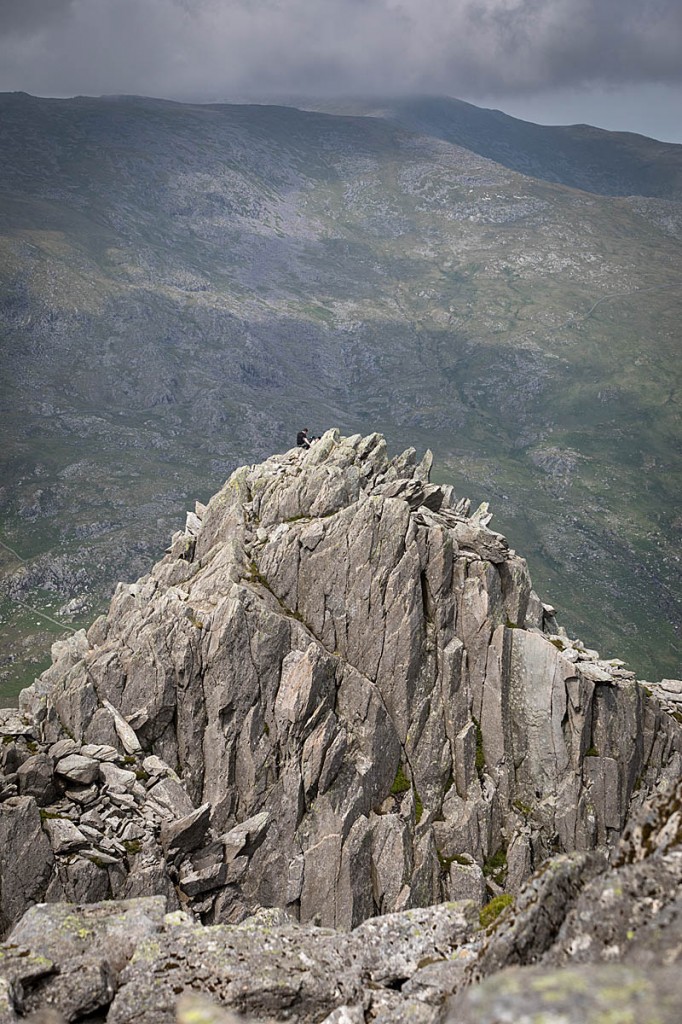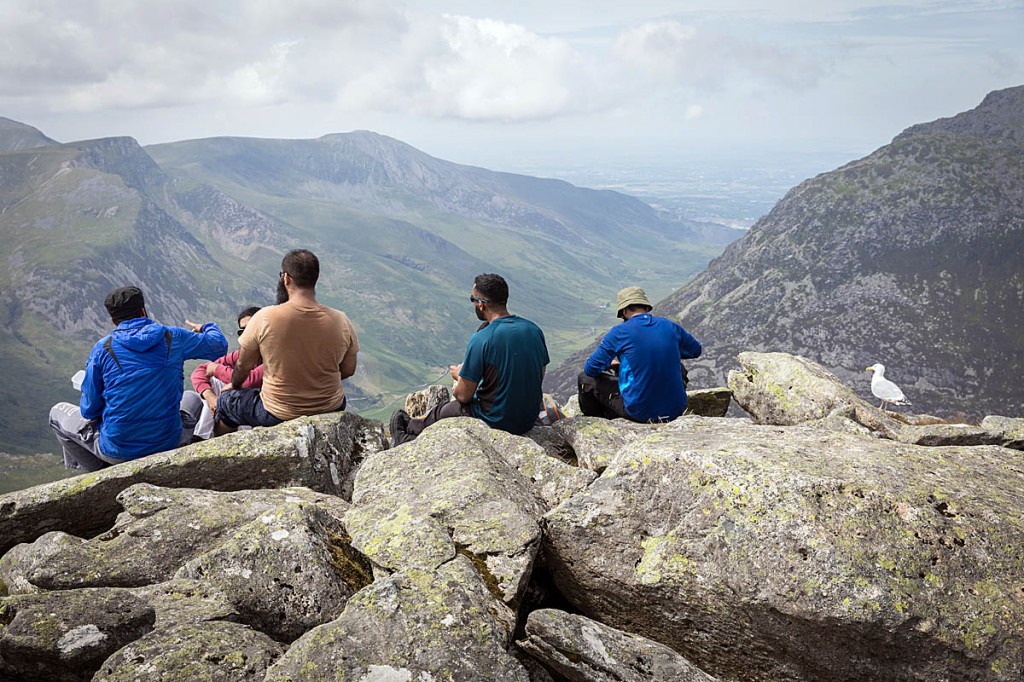Rescuers in north Wales have produced a seven-point plan for hill-goers to follow to keep out of trouble as they await an influx of extra visitors over the bank holiday weekend.
The volunteer teams that cover the mountains of Snowdonia and surrounding area reminded walkers that they are responsible for their own safety.
Being tired after reaching the summit of a mountain is not a legitimate reason to call out rescuers, they added.
The North Wales Mountain Rescue Association said walkers and other outdoor enthusiasts need to be ‘adventure smart’ when heading for the hills.
A spokesman for the association, the umbrella organisation for six teams in the area, said: “Mountain rescue teams are made up of volunteers who give of their time freely to provide a free search and rescue service for people in real need on the hills and mountains of north Wales.
“With the increasing numbers of people coming to the area to enjoy the countryside, there is an increasing number of callouts for each of the teams and many of these could be avoided by being adventure smart before setting out.”
The association said visitors should consider the following points before their journey into the hills:
- Prepare for your walk or climb. Plan your route and check if it is within the capabilities of everyone in the party. You may well be tired when to reach the summit but that is not a reason for calling 999 for help from a mountain rescue team
- Check the local weather forecast on the day. Dress to suit. It may be warm and sunny when you start but be prepared for when the weather changes
- Country paths are uneven, often loose or wet, sometimes steep. You need appropriate footwear with good grip and ankle support
- Follow the route that you planned. Hopefully, you will have a map and compass and know how to use them. Electronic aids are very good, but batteries can die
- Know your limits, choose a suitable route for everyone in the party, and know how long it will take. You may find that you are running out of daylight. You should carry a torch – not just the little light on your mobile telephone – even at this time of year. You may need the torch to follow the path or to signal to the mountain rescue team if someone is injured
- Before you leave, let someone know of your plans AND let them know when you are safely back. Mountain rescue teams are often called to search for overdue people who are in a pub enjoying a pint after a good day
- You are responsible for your own safety and that of others with you while in the hills. However, when someone is injured, or you have exhausted your alternatives to get out of trouble, telephone 999, ask for police then ask for mountain rescue.
Phil Benbow, chairman of the North Wales Mountain Rescue Association, said: “We want you to enjoy the countryside, hills and mountains of north Wales safely and to make your good days in the hills better by following this simple advice, so that we can all have a good day.”
One of the teams in the association, Ogwen Valley Mountain Rescue Organisation, has had a busy few days. It had to deal with two calls simultaneously on Tuesday afternoon from the Welsh Ambulance Service for two separate incidents.
The team’s spokesman said: “Both were retirement-age ladies, both lower leg fractures, one by Aber Falls and one on the lower slopes of Conwy Mountain.
“On Sunday evening, there were two calls within 10 minutes for people lost in cloud: a group of four young men who had descended Tryfan’s North Ridge but decided to stop when hitting the upper rock-climbing pitches of Milestone Buttress and a young couple who had had a good mountain day on the Glyders – alas all in cloud – and descended Seniors Ridge.
“Fearing that they would end up on the Idwal Slabs, they called for assistance. Both groups were reasonably equipped and shod. Both made the right decision to stop and ask for assistance, though with a bit more experience and effort, both groups could have got out of the situation by themselves.”
More helpful information on safety can be found on the Adventure Smart Wales website.
Links to mountain-specific forecasts can be found on grough’s Links page.
Thinking of tackling Tryfan? Have a look at grough’s guide first.


TH
21 August 2018Helpful guidance like this unfortunately only appears in publications that fairly experienced outdoor people read (like this site) so those in need of this advice never see it.
Maybe in future it should be inserted in The Sun, OK and Hello magazines and on other popular online sites.
Nick Couldry
22 August 2018This is an excellent guide - but I think there's one thing missing: When planning your route make sure you've allowed yourself time to get back off the hills before it gets dark (and don't assume it will take less time just because it's downhill).
Jeff Breen
22 August 2018TH is absolutely right. Only experienced people read things like Grough, SAIS, MWIS, and UKC, etc.
Having people giving advice on busy days at the start of the most popular routes is a help but needs yet more personpower.
In Some countries the rescue can charge the client if they are deemed to have been irresponsible or set out unprepared, or, ill equipped. This decision is the teams only. Genuine rescues of well equipped and competent parties remain free.
Steve
22 August 2018We often see on this site comments that at least some people should pay for mountain rescue. If anyone is responsible for deciding who pays, that decision could be subject to legal challenge. I can’t imagine that anyone who volunteers for mountain rescue (and I am certain that we are all proud of each and every one of them) would want to spend that time in the courts.
We should stay as we are with mountain rescue being free or move to the case in some other countries where everyone pays and takes insurance to cover the cost. Of course, it’s impossible to force everyone to insure so I suspect that would not the route to take. Those of us who have this far not needed mountain rescue should get off our high horses until such time as the mountain rescue organisations start to suggest their services should be paid for.
Rod Hepplewhite
22 August 2018Steve - I agree with your sentiments although I must admit to being one of those who has commented about some people having to pay for being rescued. However, I wasn't serious and I expect most others who have commented weren't serious either. Speaking for myself, it was just sheer frustration with some of the idiots who have called out MR.
I'm not sure what the solution could be, I only know things cannot continue to get worse as they presently are.
TH - a good suggestion but would the 'idiots' take any notice?
Ian512
22 August 2018"You are responsible for your own safety . . . "
This will come as a surprise for some.
yamyam.
22 August 2018As time moves on and more people take to the hills there will come a time when local MRT will not be able to continue with the amount of call outs. What happens then , who pays the wages for full time rescue teams not all areas will need this but Wales and the Lakes must be getting close.
Ian512
23 August 2018Wonder when Fire and Rescue will try to take Mountain Rescue into their domain. They tried a bit of hill rescue on Arthur’s Seat, Edinburgh a year or two back, but eventually had to call in a rescue helicopter.
Nick W
25 August 2018Agreed except for the ankle support part. It’s a myth.
Paul
26 August 2018I don’t think it’s a myth if your ankles are weak ...... speaking from experience .